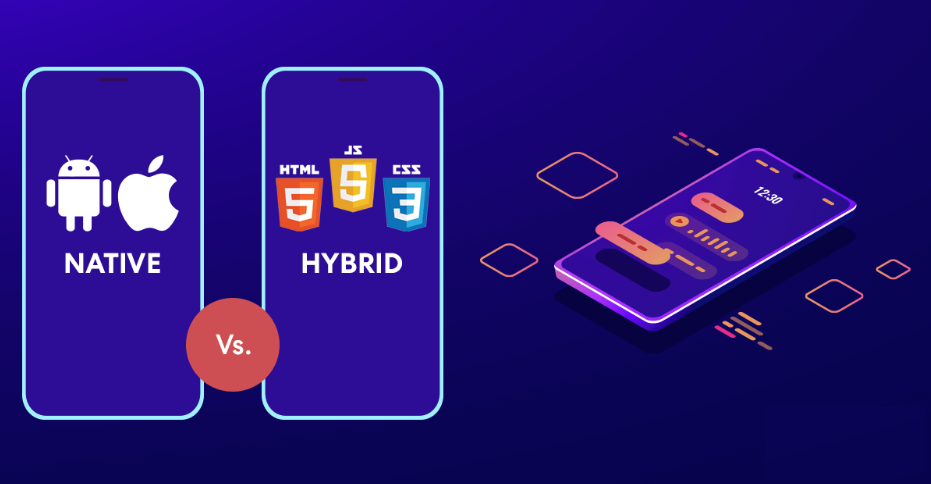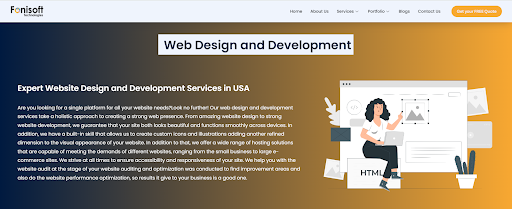Introduction: Embracing the Mobile Revolution
Nowadays, in the high speed digital environment, mobile apps have gained the status of necessities for business entities, entrepreneurs and individuals . The mobile apps have facilitated excellent communication besides handling daily chores and enjoyment. They have revamped the way we maneuver technology. In the process of businesses trying to adapt to the changing market landscape and consumer preferences, the ability to recognize the importance of mobile apps becomes valuable, which creates opportunities for development and growth, and competitive positioning in the ever-changing digital world.
Mobile App Development Process
The path to mobile app development is based on a set of stages that are intricately interlinked to one another, each with unique roles in the development process. Let’s explore the fundamental phases of mobile app development in detail:
Conceptualization: Ideation and Market Research
The first step of the path to the app includes an idea formation, the concept selections and the market research. Determine the app’s purpose, targeted group, and unique selling proposition at the beginning of the process of the development to create understanding of the project application. Capitalize on market analysis, have competitors research, as well as user surveys to get users interested and uncover market demand, user preference, and potential hurdles.
Design: Crafting Intuitive User Experiences
Design, being a key element of a mobile app development process, has a great effect not only on the app’s utility but also on user experience, engagement, retention, and satisfaction. Work closely with experienced designers who will make your interfaces visually attractive and easy-to-use that your target audience likes. Prioritize usability and accessibility as well as the attractiveness of the app. The user will want to get to the end of this route without any obstacles and with the greatest pleasure.
Development: Building Functional and Scalable Solutions
Realization of the Development phase includes turning the plans that have been made into a realistic and scalable mobile software. To determine the development approach be it native, hybrid, or cross-platform, set the requirements of your project which involve the budget and the targeted population. Apply the latest technologies, design models, and programming languages to develop high-impact, fully-working, and safe apps for mobile devices.
Unlock Your Business Potential
Testing: Ensuring Quality and Reliability
Testing is a core part of the mobile app development process that makes a system of quality standards and tracks the performance of mobile apps across devices and systems. Perform physical testing, functional testing, usability testing, compatibility testing, and performance testing comprehensively which will help in identifying and resourcing any bugs, mistakes or inconsistencies. Introduce automated testing tools and approaches for smoothly driving the test works and sensing a maximum degree.

Deployment: Launching Your App to the World
Deployment phase represents the end of the development life-cycle when you prepare to put an app into the world market. Figure out the right app store platforms like the Apple App Store and Google Play Store for distribution followed by their requests and requirements. Put up robust analytic monitoring tools to check, observe and analyze the performance, user engagement after the launch phase.
Maximizing Return on Investment (ROI) through Strategic Mobile App Development
Strategic investment in mobile app development empowers businesses to not only prospect but also effectively give customers an engaging approach by strengthening brand recognition in a highly competitive market. In order to push the limits of mobile app development and to get the maximum ROI, there are strategies that need to be implemented on the aspect development and managing of the mobile apps. Let’s delve into these strategies with a comprehensive approach:
Monetization Models: Diversifying Revenue Streams and Analyzing Market Trends
Monetization, on the other hand, is at the heart of app business success and, through direct payment from their virtual platforms, developers can reap the economic benefit directly. Monetization is another important aspect of app development, and it involves thorough research and the acquaintance with multiple options such as in-app purchases, subscriptions, ads, freemium opportunities, and so on. The fact is that different models are the best choice for your app depending on this model’s advantages and disadvantages as well as on your app type and audience. Researching in detail how the trend in the market, behavior of users and those offered by the competitor are of great importance so that proper monetization strategy is optimized for maximum profit. Implementation of comprehensive analytical tools will offer better engagement insights on fan compliance to different monetization means. That means, data-driven decisions.
User Engagement Strategies: Cultivating Loyalty, Feedback, and Iterative Enhancement
User engagement can be called a life of purpose for the persistent success of the app market. In order to support and down the line client loyalty, it is necessary to develop a comprehensive plan which will address key factors that enhance client experience and his satisfaction. Individualized experience as per the taste of a user would definitely pump the engagement to a great extent. The use of gamification functionalities including quests, awards, and leaderboards will increase interest of the users to the app and they will start to consider it something more than usual. In order to maintain engagement, strategic use of push notifications that shares time and relevant updates can keep users continually informed. Launching rewards programs that encourage organic user actions like referrals or in-app activities can additionally stimulate engagement and brand loyalty. Such activities will result in more user participation and app usage.
Users’ viewpoint and active listening to their suggestions which are foundational elements of the consistent improvement will be greatly appreciated. Refining and amplifying the app with user comments on what bothers them is why the pain points can be resolved, new features can be introduced, and the app remains the same the users expect. Using the agile development method, make sure to be very flexible to make rapid iterations and improvement in construct led by emerging user demands and satisfaction.
Boost Your Online Presence!
Performance Optimization: Enhancing User Experience through Seamless Functionality

Improving the optimization in presenting a smooth and desirable user experience that is consistent across different platforms and devices is of the essence. Consistently tracking the app performance metrics like load times, responsiveness, and stability is a must-have to pinpoint the bottlenecks and clogged cases. Implementing optimization measures such as improving loading speeds, reducing crashes, and providing a better interface will improve user satisfaction.
Focusing on user-centered design principles and putting functionality first helps to make the app easy to use, navigate, and visually attractive. In the process of performing rigor user testing and obtaining real business users’ feedback one can see what needs to be changed and use that in the optimization attempts. Implementing the best practices of app development, like code optimization influencing the efficient use of resources and proper architecture, allow the users to use applications smoothly and reliably.
In the end, getting the maximum ROI in mobile app development requires a comprehensive approach that covers monetization strategies, user engagement programs, and performance optimization. Through the use of data-driven insights, implementing customers’ feedback, and continuously developing their product the businesses can discover the full power of the mobile applications and become successful in a challenging market environment.
FAQs
- Is mobile app development suitable for small businesses?
- What factors should I consider when choosing a mobile app development partner?
- How can I measure the success of my mobile app?
- What are the latest trends in mobile app development?
- How can I promote my mobile app effectively?
- What are the key considerations for app maintenance and updates?
Contact Us for Expert Advice and Services!








